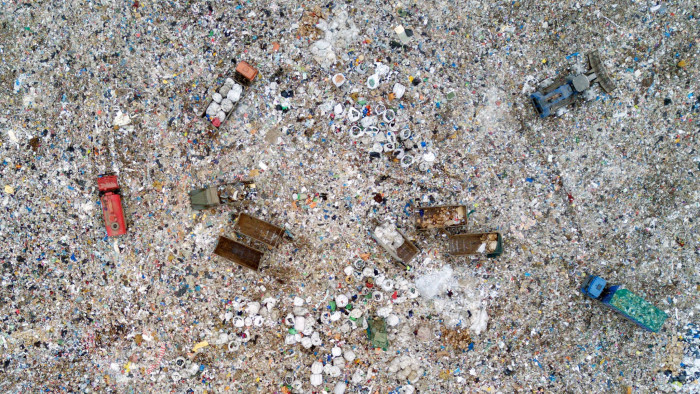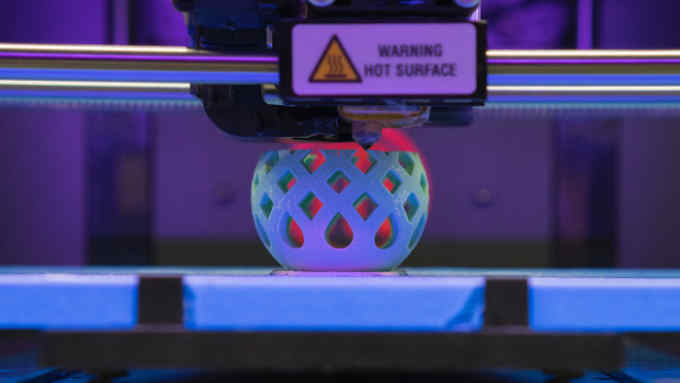Creation of a circular economy will require extreme action


Roula Khalaf, Editor of the FT, selects her favourite stories in this weekly newsletter.
The contents of an average household’s rubbish bin has changed in recent decades: it now contains more Amazon boxes, for example, and more plastics. But the biggest trend in trash is simply that we are producing much, much more of it.
At present the world creates 2bn tonnes of solid waste a year: this is expected to rise to 3.4bn tonnes by 2050, according to the World Bank.
“The current economy model of take, make and waste is massively extractive,” says Andrew Morlet, chief executive of the Ellen MacArthur Foundation. “We get very little utility and we have seen a massive rise in disposability, which is an easy way to extract value. The waste created is absolutely huge,” he says.
A new generation of entrepreneurs is trying to do something radical — eliminate waste altogether.
“We have a real problem right now. About 70 per cent of the stuff people throw out ends up in landfill even though it is perfectly usable,” says John Atcheson, chief executive of Stuffstr, a London start-up.
His company’s solution is to put a price on used goods. Instead of donating or discarding unwanted clothes, Stuffstr takes them away and pays you for the privilege. It then resells or recycles them, depending on the kind of product and its condition.
Retailers pay Stuffstr to provide a repurchasing service for their customers. In a trial with the John Lewis & Partners store chain last year, customers who participated sold back a fifth of their purchases, on average, from the past five years.
“We want to resell it and get it to someone who will use it,” says Mr Atcheson.
Disposable consumption has created a huge amount of waste, he says. This can change if consumers buy products designed to last longer and sell these when they are done.
By stimulating demand for longer-lasting products, he hopes manufacturers will respond by producing such goods.
“We want people to get into a completely different mindset. By putting a price on every single item, you give consumers an incentive to buy differently,” Mr Atcheson says.
This is just one aspect of achieving a “circular economy”, which refers to a system in which materials and products are reused and recycled, rather than thrown away. The EU has embraced the concept and its circular economy strategy, adopted last year, includes a 65 per cent target for recycling and reuse by 2035.
A more circular economy is beneficial beyond reducing rubbish — it also cuts greenhouse gas emissions, according to Mr Morlet. “For us to be able to achieve climate objectives, it is not just about renewable energy and energy efficiency . . . the circular economy is essential,” he says.
The way materials are made and used accounts for 45 per cent of greenhouse gas emissions, according to a report by the Ellen MacArthur Foundation .
The emissions from industrial production of cement, plastics, steel and aluminium would have to be cut to almost nothing for the EU to reach net zero emissions by 2050 , a goal it is expected to adopt later this year. The study estimates that emissions from these materials could be cut by 40 per cent just by reusing and recycling more of these goods .
At the moment “we are seeing peak disposability,” says Mr Morlet, but that is changing. “We are starting to realise that the notion of everything being disposable . . . is no longer viable.”
If the circular economy takes off, then by 2050 purchasing and disposal will be radically different to today. Imagine buying clothes that last for years, shopping for food using refillable containers or buying a home made with reused material.
Today’s world is a long way from that — but it may be starting to shift.

Comments